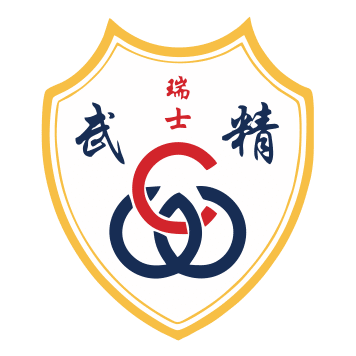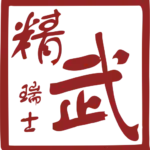中 國 精 武 体育 會
FOUNDER
HUÒ YUÁN JIǍ
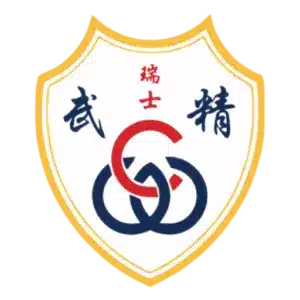
The first official Chin Woo school was founded around 1909 in Shanghai (China). By naming Chin Woo Athletic Associaton rather than Kung-Fu Association, the founders ensured that rebellious and militaristic conflicts could be avoided. This helped to deter both the general public and local authorities from worrying about an association of this newly established school with subversive activities.
The origin of the Chin Woo Athletic Association
The Meaning of Chin Woo – The word Chin (Jing in Cantonese) means refined, top-notch, or spirit. The word Woo (Mo in Cantonese) means military, martial arts, brave and daring. The first official Chin Woo school was founded around 1909 in Shanghai (China). By naming Chin Woo Athletic Associaton rather than Kung-Fu Association, the founders ensured that rebellious and militaristic conflicts could be avoided. This helped to deter both the general public and local authorities from worrying about an association of this newly established school with subversive activities.
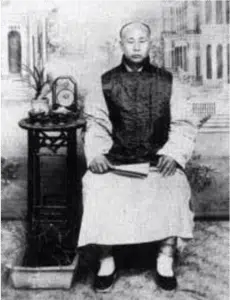
Founder of the official Chin Woo Athletic Association.
HUÒ YUÁNJIǍ
The first Chin Woo school was founded in Shanghai (China) in 1909 and is now one of the largest martial arts organizations in the world. Well over 35 nations practice this unique art of noble fighting.
Of course, this also includes a great cultural background, which is taught at the Chin-Woo schools. Chinese Philosophy and way of thinking is taught as well as cultural customs. Respect, discipline, perseverance, strength, honesty and fairness were already among the most important aspects to learn such a martial art. Only those who worked themselves and were able to gain the trust of the teacher were trained in this art. With the three virtues: wisdom, kindness and courage, well over thousands of students practice the Chin Woo system today.
Huo was born in Xiaonanhe Village, Jinghai County, Tianjin, the fourth of ten children of Huo Len Dai. The family's main source of income was agriculture, but Huo Len Dai also made a living by escorting trade caravans to Manchuria and back. Although he comes from a family of traditional Wushu practitioner, Huo was born weak and prone to illness. He had asthma and at a young age he developed jaundice, which recurred regularly for the rest of his life. (It is believed that he may have had a mild form of congenital jaundice known as Gilbert's syndrome). Due to his frail body, his father advised him not to learn traditional Wushu.
Huo Len Dai hired a tutor named Chen Seng-ho from Japan to teach his son academics and moral values. In return, Chen was taught the martial arts style of the Huo family, Mizongyi. Against his father's will, Huo still wanted to learn Wushu. He secretly watched his father teach martial arts to students during the day and practiced them with his tutor at night.
In 1890, a martial artist from Henan visited the Huo family and fought with Huo's older brother. Huo's brother was defeated and to the surprise of the family, Huo fought his brother's opponent and defeated him. When Huo proved that he was physically capable of practicing Wushu, his father accepted him as a student. In later years, Huo challenged martial artists from neighboring countries, and his fame grew as he defeated more and more opponents in fights.
Huo joined his father in his work as a caravan guard. One day, while escorting a group of monks, Huo was confronted by an aggressive bandit leader who threatened to attack the monks with his henchmen. Huo fought the bandit leader and defeated him. News of his achievement spread and contributed to his growing fame. In 1896, Huo went to Tianjin and earned his living by working as a porter in the Huaiqing Pharmacy and selling firewood.
In 1902, Huo responded to a challenge announced by a Russian wrestler at Xiyuan Park, Tianjin. The wrestler openly called the Chinese "weak men of the East" because no one accepted his challenge to a fight. The Russian lost when Huo accepted his challenge. The Russian told Huo that he was only giving a performance to make a living and apologized for his earlier remark in the newspaper.
Between 1909 and 1910, Huo traveled to Shanghai twice to face an open challenge from Irish boxer Hercules O'Reilly. The two argued about the rules for such boxing matches and finally agreed that the one who knocks down his opponent would be the winner. O'Brien fought Huo and lost. Huo's victory was a great inspiration for the Chinese people and made them question the basis of imperialist dominance. However, there is a lot of controversy about whether the fight ever took place. A recent article states that O'Reilly chose to leave the city instead.
Between 1909 and 1910, Huo founded the Chin Woo Physical Training Center (later known as the Chin Woo Athletic Association) with his close friend Nong Jinsun as president of the club. Huo was encouraged by close friends and sponsored by Sun Yat-sen and Song Jiaoren, who lived in Tokyo, Japan. The center was intended to be a school for learning the art of self-defense, improving health and mind.
Huo suffered from jaundice and tuberculosis and went to see a Japanese doctor for medication and treatment. The physician, a member of the Japanese Judo Federation based in Shanghai, invited him to a competition when he heard about his fame. Huo's student Liu Zhensheng competed with a judo practitioner.
Huo died in 1910 at the age of 42. In 1989, the grave of Huo and his wife was moved. Black spots were discovered in the pelvic bones, and the Tianjin Township Police Laboratory confirmed that they contained arsenic. Consequently, it is difficult to determine whether his death was caused by malicious poisoning or the prescription of medication. This is because arsenic trioxide has been used therapeutically as part of traditional Chinese medicine for about 2,400 years.
Historian Chen Gongzhe, who was also one of Huo's disciples, believed that the cause of his master's death was coughing up disease. Chen wrote that Huo was introduced to a Japanese doctor by the judo instructor when his health deteriorated. The doctor prescribed medication for his condition, but Huo's health continued to deteriorate. Huo was admitted to Shanghai Red Cross Hospital, where he died two weeks later. Although Chen did not mention that the medicine prescribed by the Japanese doctor contained arsenic or anything else.
In January, the new film by the world-famous kung fu star Jet Li "Fearless" (Huo Yuanjia) was released in Chinese cinemas. It is a biographical film based on a true historical story. According to tradition, Huo Yuanjia is a national hero from rural Tianjin, where he founded the Jing Wu Men School martial arts school and fought several foreign fighters in the declining Qing Dynasty (1644-1911). He died on September 14, 1910 at the age of 42, shortly after defeating 10 Japanese judokas.
經過10個月的取證準備,霍元甲家屬訴霍元甲案昨日開庭審理。 霍家週三在天津召開新聞發布會,宣布放棄追索經濟賠償,但要求電影公司道歉。 據上海青年報報導,霍元甲的曾孫霍子政和家庭代理人楊仲凱週三對媒體表示,他們要求中影集團旗下的北京電影製片廠和愛德科影業有限公司等電影製作和發行公司道歉。
Huo Yuan Jia was born near Tjanjin in 1867 and grew up as the fourth child of a family of ten. His father, Huo Len Dai, was a famous Kung-Fu/WuShu fighter of the Mi Zhouen Chan style. Huo Yuan Jia suffered from jaundice in childhood. Therefore, his father refused to pass on his knowledge of Kung-Fu/WuShu to him. Huo Len Dai was a very traditional Chinese man with a long history within the family. He feared that Huo Yuan Jia would not be able to live up to the high standard he set for a Kung-Fu/WuShu fighter, and that shame and ridicule would fall on his family.
His father considered a position as a scholar to be more promising and sensible, perhaps Huo Yuan Jia In later life, he was characterized above all by his modest manner and his educated appearance. At that time, however, the training ban hurt Huo Yuan Jia's pride in the first place. Because his brothers were all able to learn Kung-Fu/WuShu and thus also the tradition and later pass it on. He felt outcast and disrespected. Even at the age of 12, he was still constantly losing wrestling matches against sometimes much younger opponents. He didn't want to let this disgrace sit on him anymore and no longer accepted his father's ban on training. To circumvent this ban, he dug a hole under the wall behind which his father and brothers were training. For over 10 years, Huo Yuan Jia followed the training without being caught.
He trained secretly with the knowledge he had acquired through the many hours of observing his father and brothers. His secret was revealed when a former enemy of his father challenged him to a duel. His father used to accompany trade caravans and accompanied them to Manchuria and back. In an unexpected attack, Huo had defeated this stranger in a duel as he tried to ambush the caravan. Huo Len Dai was suffering from rheumatism at the time. So Huo Yuan Jia's brothers accepted the challenge. Shortly before they were defeated, Huo Yuan Jia intervened and decided the fight in his favor. Surprised by the Kung Fu/WuShu Skill Huo Len Dai decided to teach Huo Yuan Jia everything he knew about Kung-Fu/WuShu. Over the next few years, he worked with his father as a companion of trade caravans. His victory over a notorious bandit leader made Huo Yuan Jia famous within China. After his time as a caravan escort, he earned his living by selling firewood. It was said that he carried up to 200 kg of wood on his back.
In 1896 he worked as a porter in a medicine shop. His employer, a well-traveled doctor, told Huo a lot about the imminent danger that Japan posed to China. When the Boxer Rebellions broke out in China in 1899, Huo realized how serious China was. His people and his country had become weak. "The sick man of Asia" was a common term used to refer to the Chinese at the time.
Huo Yuan Jia came to believe that only a strong body and mind could produce a strong person, and a strong people could produce a strong country. He gave new hope and pride to numerous compatriots, especially his ideas and ideas live on to this day.
In 1909, the Irish boxer O'Reilly came to Shanghai and announced that he would easily defeat any Chinese who came forward to fight. In desperation, they turned to Huo Yuan Jia to stand up to the boxer. After a long hesitation, he accepted the challenge. At the first meeting, O'Reilly and Huo Yuan Jia could not agree on the rules. O'Reilly was of the opinion that fighting should only be done with the fists and only above the belt, Huo's view was that everything should be allowed. At the second meeting, they agreed that the winner would be the one who brought the other to the ground first. O'Reilly, however, did not appear on the agreed date. It is said that he escaped in a night and fog action.
Further danger came from a man named Zhan Wen Dat. He was the teacher of the bandit leader who had been defeated by Huo. Zahn Wen Dat organized a kung fu tournament in an attempt to trap Huo in order to restore his reputation. Since Huo was suffering from yellow fever again at the time, he sent his master student Liu Zhengshen to accept the challenge. The battle did not bring a decision and Zhan rejected an offer of peace. He wanted to fight with Huo to prove that he was the better one. The duel that took place between them lasted only a few moments: Zhang was defeated with two movements. Huo's disappointment with people like Zhang and the development of new technologies such as firearms led Huo to question the practical benefits of kung fu and to have long conversations with his friend. He reminded Huo of his belief that physical and mental development is essential for a strong people.
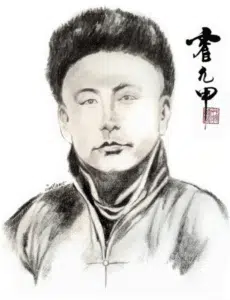
Respect, discipline, perseverance, strength, honesty and fairness are among the most important aspects to learn Chin Woo Kung Fu.
Grandmaster
Due to the history of China, as well as its heroic status, legends and myths about events, its life is very difficult to follow.
Chinese: 霍元甲
Pinyin: Huò Yuánjiǎ
Jyutping: Fok Jyun gaap
Cantonese: Fok Yuen-gap
The Three Virtues
A wise person is characterized by clarity, insight and a deep understanding of the world. Such a person has learned to penetrate the surface of things and see the truth behind the facades. Her life experiences and reflections have taught her to look critically at situations, to balance emotions and not to blindly follow impulses.
A person of wisdom is not only intelligent, but also intelligent. patient and attentive . She listens before she speaks, and observed before judging. Her judgments are based on principles, not prejudices, and she is not easily influenced by outside opinions or fleeting trends.
Deception is rarely successful with a wise person, because he often sees the intentions behind the words and recognizes attempts at manipulation. Her sharp mind combined with a calm heart makes her resistant to deception. Wisdom gives her the ability to distinguish between the essential and the non-essential, making her a beacon of clarity and understanding not only for herself but also for others.
But true wisdom also comes with it Modesty : A wise person knows that he does not know everything – it is precisely this knowledge of his own limits that makes him all the more alert and receptive to new insights.
Kindness is one of the noblest qualities a person can possess. It is characterized by Empathy , Compassion and the ability to help other people with Warmth of heart . A person who is full of goodness often lives in harmony with himself and his environment. She has a deep understanding of the needs and feelings of others and always acts out of an inner drive to promote the well-being of others.
It is often said that a person full of goodness has no worries, but that does not necessarily mean that he or she does not experience challenges in life. Rather, its strength is shown in how it deals with these challenges. People who are filled with kindness tend not to overstate their worries or let them overwhelm them. They consider difficulties with a clear mind and an open heart and look for solutions that benefit everyone involved.
Her composure and their positive charisma have a contagious effect on their fellow human beings. These individuals often find fulfillment in helping others and spreading joy. Their kindness is not just a trait, but a way of life that makes them want to make the world a little bit better. And perhaps this is precisely the secret of their apparent carefreeness: they see life as a space of opportunity and see every challenge as an opportunity to unfold its goodness.
Courage: A person of courage is not afraid to take risks or face challenges. She shows steadfastness in difficult times, acts decisively and does not allow herself to be paralyzed by uncertainties or fear. Courage does not mean the absence of fear, but rather to act in spite of this fear. It is the ability to withstand internal doubts or external obstacles and to make decisions that may sometimes seem unpleasant or risky.
Courageous people stand up for their beliefs even when faced with headwinds, and they are willing to take responsibility even when the outcome is uncertain. This trait manifests itself in various forms – whether it is physical courage, which is visible in dangerous situations, or moral courage, which consists of standing up for what is right, even when it is unpopular.
Living with courage means facing challenges and growing from them. It is the basis for progress and personal growth, because without courage no change would be possible.
瑞士精武体育會 • 霍元甲
In Tianjin stands the world-famous museum, which was built as a memorial to Master Huo Yuan Jia.
Founder Huo Yuan Jia was a freedom fighter! He supported the poor and sick by treating them medically. Thanks to his mysterious medical knowledge of medicinal herb mixtures, he was able to alleviate or even cure diseases and physical ailments. He gave his patients new hope and had them train in his Kung Fu school until they were fit again. The training increased self-esteem and the students felt safer, stronger and healthier again after a short training period. Health, well-being and physical fitness have always been very important to Huo Yuan Jia.
In this region, Master Huo Yuan Jia was a hero. Thousands honored him and were able to benefit from his knowledge. He taught the philosophy of Chin Woo by performing kung fu shows in public places. This increased his popularity and people came from far and wide to marvel at his students demonstrating Kung Fu.
